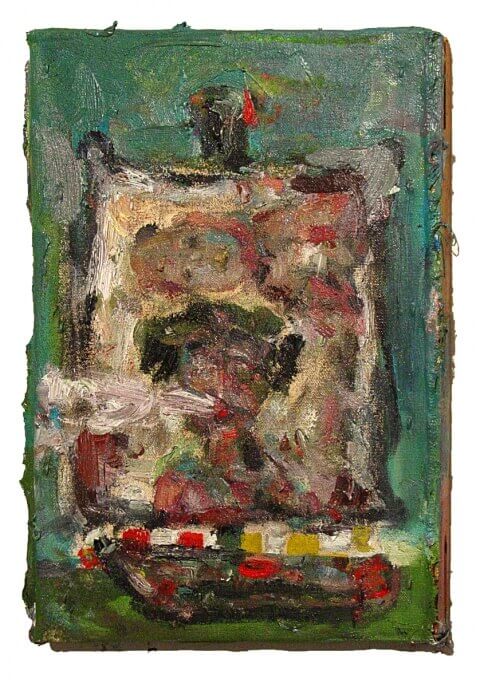Michael Rutherford interviews painter Farrell Brickhouse about his work and process.
Brickhouse comments: "One question I ask when entering the studio is, 'what needs to be said, what can my art contain?' My studio time is not unique, it runs the whole gamut: from the workman-like strokes that one makes until something more significant can happen, to the terrible certainty that it is all collapsing and one should just buy a boat and be done with it. There are the moments when I come alive; the marks seem determined, as if they always existed, and I am witnessing the process unfold—and all that one knows seems to be available in this illuminated moment. One also learns when to stop and step out of the trenches and look for a while to see what has been achieved, especially after the novelty wears off. Sometimes it’s a way forward that’s been rendered and sometimes one is rewarded with a decent work. My practice is one of having multiple paintings going at once. I may focus on just one thing, but usually there is this leapfrogging going on, where one work liberates the other to take the next step. I’m often amazed at how a casual three-minute sketch on a small piece of paper can inform a painting. I putter around and I have lots of visual sources lying about, as well as my own drawings, gouaches and such. I’m very organized, but in the immortal words of Patti Smith, 'one has to lose control to gain control.' "
